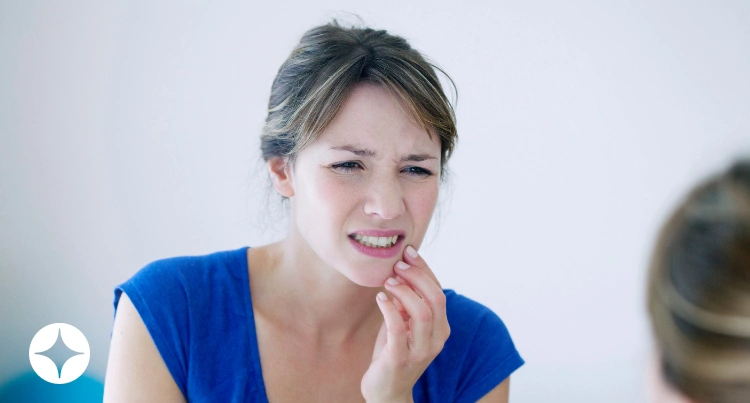
Many individuals experience bruxism, a condition where they clench, gnash or grind their teeth involuntarily. Studies suggest that up to 50% of children experience this condition, with many growing out of it as they age. That said, estimates suggest that it still affects up to 30% of adults, with around 13% of people experiencing regular teeth grinding.
People may grind their teeth during the day or night, with subconscious nighttime bruxism especially problematic because people aren't aware of their actions. The condition can lead to various issues and has diverse causes. Research also points to links between bruxism and other sleep conditions, such as snoring and untreated sleep-related disordered breathing.
This article gives an overview of bruxism and explores how it could indicate other harmful sleep disorders.
Causes of Nocturnal Teeth Grinding
The exact causes of bruxism aren't known. Scientists believe that emotional factors and mental health conditions, such as tension, anxiety and stress, cause many cases of teeth grinding, clenching and gnashing while awake. Genetic factors and medications may also lead to awake bruxism.
However, sleep-related bruxism often has other roots. It's classed as a sleep-related movement disorder and commonly accompanies other sleep issues, such as sleep apnea. Occasionally, parasites might accompany sleep bruxism, particularly in children.
Signs of Nighttime Bruxism
Many people aren't aware that they grind or clench their teeth while they're sleeping. However, several signs may alert individuals to possible problems. These include unexplained damage to the teeth, such as chips, cracks or worn enamel. People may also feel pain, tenderness or stiffness around the face or jaw that they can't account for. Bruxism can cause headaches, too.
Other signs include damage to the inside cheek or tongue, sensitive teeth and waking throughout the night. Partners might hear or see their significant other moving their jaw and grinding their teeth during the night.
Dangers of Sleep Bruxism
As well as damaging the teeth and causing pain, sleep bruxism can have wider impacts on health. It can reduce the quality of sleep, which is harmful to both physical and mental well-being. Indeed, studies show that nighttime bruxism causes disturbed sleep and frequent nightmares. Moreover, sleep deprivation can also shorten life.
The impacts of bruxism-related sleep disturbances often increase when accompanied by another sleep disorder. Sleep quality is often significantly reduced. Therefore, for anyone who has or suspects they have bruxism, it's crucial to investigate whether they have coexisting sleep conditions and seek appropriate treatment.
Treatments for Teeth Grinding and Associated Conditions
Various treatments can help reduce teeth grinding or minimize its impacts. For example, health care staff may recommend wearing a mouth guard to bed, taking medications, making lifestyle changes or attending counseling.
People with other sleep conditions often see an improvement in nighttime sleep grinding when they obtain treatment targeting those issues. For example, using a CPAP machine is an effective treatment for sleep apnea. Resolving disordered breathing often also reduces bruxism incidence. Several products can help to improve the sleep therapy experience, such as maintaining optimum cleanliness with the SoClean 2 CPAP Cleaner and Sanitizer and enhancing comfort with a specially designed pillow.
Anyone who suspects they grind or clench their teeth at night should seek medical advice from their dentist or physician. Medical professionals might also perform tests to check for other sleep issues.
References
- Mayo Clinic – Bruxism (teeth grinding)
- National Library of Medicine - Sleep Bruxism in Children: Etiology, Diagnosis, and Treatment—A Literature Review
- National Library of Medicine - Sleep Bruxism-Tooth Grinding Prevalence, Characteristics and Familial Aggregation: A Large Cross-Sectional Survey and Polysomnographic Validation
- Health.Mil – Teeth Grinding: You Won't Believe How Harmful it Really Is
- National Library of Medicine – Sleep bruxism: Current knowledge and contemporary management
- Johns Hopkins Medicine – Bruxism
- Caldwell, Bills, Petrelli & West Dentistry – Sleep Bruxism: What Is It?
- Marvel Clinic – Are Snoring and Teeth Grinding Related
- National Library of Medicine – The Relationship between Sleep Bruxism and Obstructive Sleep Apnea Based on Polysomnographic Findings
- MedlinePlus – Sleep Disorders
- Cedars Sinai – Teeth Grinding: Causes, Treatments and Consequences
- American Academy of Sleep Medicine – The AASM International Classification of Sleep Disorders – Third Edition, Text Revision (ICSD-3-TR)
- Mayo Clinic – Sleep apnea
- National Library of Medicine - The Correlation between Intestinal Parasitic Infections and Bruxism among 3-6 Year-Old Children in Isfahan
- National Library of Medicine - The dental demolition derby: bruxism and its impact - part 1: background
- National Library of Medicine - Headache secondary to sleep-related bruxism: A case with polysomnographic findings
- Le Dentistry & Associates – 6 Surprising Problems Caused By Nocturnal Teeth Grinding
- Healthline – The Effects of Sleep Deprivation on Your Body
- Mental Health Foundation – Sleep Matters – The Impact Of Sleep On Health and Well-Being
- National Library of Medicine – Association between Self-Reported Bruxism and Sleeping Patterns among Dental Students in Saudi Arabia: A Cross-Sectional Study
- American College of Cardiology – Getting Good Sleep Could Add Years to Your Life
- WebMD – Sleep Apnea Treatment Options
- National Library of Medicine – Current Treatments of Bruxism
- National Heart, Lung, and Blood Institute - CPAP
- SoClean – SoClean 3
- SoClean – The Ultimate Sleep Equipment Pillow